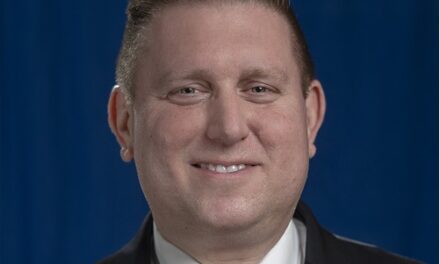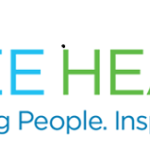 When Hurricane Irma was swirling toward South Florida, Richard and Peggy Pitkin received a phone call amid their storm preparations. It was Rev. Guillermo Escalona, director of Pastoral Care at Miami Cancer Institute, checking in to see if they needed anything.
When Hurricane Irma was swirling toward South Florida, Richard and Peggy Pitkin received a phone call amid their storm preparations. It was Rev. Guillermo Escalona, director of Pastoral Care at Miami Cancer Institute, checking in to see if they needed anything.
The call was unexpected and boosted their morale. It made such a difference for the Coconut Grove couple to know that Rev. Escalona cared about them. Not only was the couple bracing for the hurricane, but also dealing with cancer treatments for Mr. Pitkin, 87, who has a bone marrow condition known as myelodysplastic syndrome. “The phone call was very helpful,” Mrs. Pitkin recalled.
The call wasn’t out of the blue. The Pitkins and Rev. Escalona had formed a bond during the couple’s regular visits to Miami Cancer Institute – Baptist Health South Florida’s new, state-of-the-art cancer center on the campus of Baptist Hospital – where Rev. Escalona oversees a robust spiritual care program available for free to all patients, their families and staff.
“It’s integral to our mission is to provide emotional and spiritual support,” Rev. Escalona said. “We’re able to do very holistic work here.”
As board-certified clinical chaplains trained to integrate their religious perspectives, personal experience, behavioral sciences and theological assumptions with the realities of patient care, Rev. Escalona and Father Eduardo Jimenez routinely walk throughout the Institute, making rounds and connecting with patients, families and staff. They also counsel patients referred to them by Institute physicians, hold religious services in the Institute chapel, give uplifting talks, lead a variety of courses and run programs for employees, including a lunchtime “Chat with the Chaplain.”
“We support anyone who calls on us,” Rev. Escalona said. “We are trained to work with patients from any faith background and those who have no religious commitment.”
Hermis Dominguez, originally a Baptist Health employee in construction management, was eager to work at Miami Cancer Institute once it opened in January 2017. “With all the family history I’ve had with cancer, I knew I wanted to work there,” said the data analyst with the Institute’s disease management teams. “I felt I could relate to the patients and their family.”
After her father died of colon cancer last August (and she had lost her mother to lung cancer years earlier), her leader at the Institute, a physician, reminded Ms. Dominguez that she could seek support from Rev. Escalona. She met with him when she returned to work.
“A lot of people in our family have died of cancer and we were doubting our faith,” said Ms. Dominguez, who was raised Catholic. “Talking to Rev. Escalona made the difference. Not only did he help me get through this, but, but he also made me feel that it’s OK to have questions, to question religion and know that this is part of life. It’s not anybody’s fault. His words were very comforting to me.”
Rev. Escalona and Father Jimenez meet regularly with the Institute’s palliative medicine team — which includes palliative medicine specialists Mariana Khawand, M.D., and Suleyki Medina, M.D., a social worker and a nurse practitioner — to discuss the broad and specific needs of patients and staff.
“In palliative care, we are trained to ask our patients about their spirituality and use this information to make referrals to our spiritual counselors,” Dr. Khawand said. “The spiritual component of a person is just as important as the medical component. The chaplain’s role is to help bridge medicine and spirituality so we are helping the patient in a holistic way.”
Dr. Khawand emphasizes that palliative care addresses the physical, emotional, practical and spiritual concerns of patients facing any serious illness. The specialized field focuses on providing patients with relief from the symptoms of their illness, including pain and stress, and aims to improve the quality of life for patients and their families.
Rev. Escalona offers support by helping patients tap into life’s meaning and purpose, issues that often arise during a life-threatening illness. He asks: “Where do you find peace? Where do you find hope?” Then he tries to help patients access spiritual resources they have within them. Breathing exercises, guided meditation and using the imagination often are helpful and healing for those without a religious model.
“We draw people out and give them a chance to share or vent,” Rev. Escalona said. “We make ourselves available as instruments of healing. Sometimes people who have never thought of pastoral care as appropriate call us for their needs.”
Rev. Escalona also is part of the core faculty for an end-of-life course for second-year medical students at Florida International University’s Herbert Wertheim College of Medicine. And he teaches continuing education courses to nurses and other healthcare providers on such topics as “compassion fatigue.”
One afternoon while her husband had chemotherapy at Miami Cancer Institute, Mrs. Pitkin attended a “very meaningful” service in the Institute’s chapel. Afterward, she spoke with Rev. Escalona about some spiritual matters and then asked if he could visit her husband in the chemotherapy infusion area.
He agreed, and the next thing Mrs. Pitkin knew, her husband and the chaplain “were totally occupied. It was so helpful to my husband for Rev. Escalona to show his interest and come be with him. We almost had to tear them apart.”
Mr. Pitkin, an accountant who continues to run his own business with his wife, enjoys talking with everyone he encounters at Miami Cancer Institute, especially Rev. Escalona. “I was so impressed with his openness and friendliness,” he said. “Right away we connected.”
Rev. Escalona assured Mr. Pitkin, who has chemotherapy treatment five consecutive days every month that reaching out to engage with others is a very positive way to cope.
“That encouraged me to continue this attitude,” Mr. Pitkin said. “It has been a great focus away from my own physical challenges and toward helping others.”
Rev. Escalona “will meet patients wherever they are at,” Dr. Khawand said. “It’s a really great collaboration and unique because not every cancer center has that kind of intensive spiritual counseling service.”

























